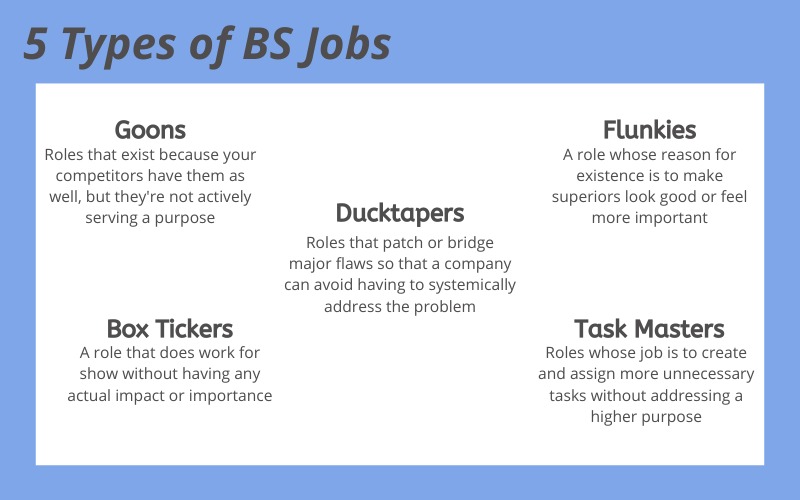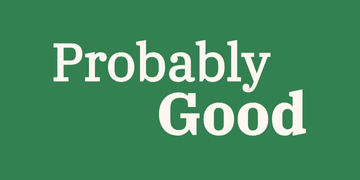Role leverage is the total influence a role has on the impact the organization or company is trying to make. In other words, how critical is this role for the organization’s success? The higher a role’s leverage, the more opportunity there might be to make a big counterfactual impact.
Influencing impact
Broadly speaking, leverage can be thought of as your total influence over how resources, time, labor, and money are spent. In short, it’s your capacity to affect what gets done–and how it gets done.
For example, if you’re able to donate large sums of money to effective charities, you’ll have significant influence over what kind of work gets done to improve the world. Similarly, if you’re in a position that can influence national policy, your decisions can make a big difference to many peoples’ lives.
Zooming in further, your role leverage can be thought of as the total influence a role has within an organization. For instance, a CEO position has very high role leverage–they’re capable of making big changes to the way an organization operates. In contrast, someone working in the mail room has a lot less role leverage–they’re less able to influence what the organization is doing.
How much does this role actually matter?
To get a sense of a role’s leverage, we need to answer a fairly simple question: does it actually matter?
You probably know of jobs that seem highly critical, ones in which every task and hour involves important work.
You’ve also probably encountered jobs that don’t matter too much, ones in which it’s unclear whether a person doing it makes any difference.
Anthropologist David Graeber’s book Bullshit Jobs goes as far as indexing these sorts of jobs into a “typology of bullshit.” In it, he breaks down the five major types of jobs that may be a waste of time and resources.

Even within an organization that’s doing great work in a high-priority cause area, a role might not have much impact by itself. As a result, the first step in determining a role’s leverage is to make sure it makes a difference. This often depends on the specific situation and organization, but you can gain some intuition by asking yourself:
- Would the organization still make progress without this role?
- Is this role central to what the organization does?
- How much will this role enable others to do important work?
- Does this role directly make an impact on the problem we’re solving? If not, how does it indirectly contribute to progress?
If you’re at the point of interviewing with specific organizations, another helpful way to gain a sense of a role’s importance is to simply ask them. It may be tricky to get an honest answer, but some strategic questions can help you gain a sense of what this role looks like within the organization’s structure and dynamic:
- How does this role impact the organization?
- What’s the difference between someone great at this role vs. just okay at it?
- What do the day-to-day activities of this position look like?
- What sort of dilemmas does this role deal with?
After investigating, you can usually get a sense of whether or not a role is very useful. If a role seems to meaningfully contribute to the organization’s goals or impact, great! We can probably say it has pretty good leverage. However, there are also some cases where a role’s leverage score could be much, much higher.
Uniquely high leverage scenarios
Fortunately, effective companies and nonprofits tend to have less BS jobs and useless roles. But even if a role is genuinely useful, there can still be major differences between the leverage of different positions. That’s why if you can find a situation with uniquely high leverage, it can be a great opportunity to increase your impact. Below we’ll touch on a few (though not the only) ways in which a role could have greater leverage.
Having influence over budgets and resources
A role can often have high leverage if it has access to or influence over a lot of resources. A grantmaker, for example, can leverage their position to influence how large sums of money are spent.
Similarly, a role in the civil service or government may have some influence in budget matters, which could determine how different resources are utilized and allocated. If a role has the ability to influence contributions beyond your own, it naturally has an outsized impact within the problem or organization.
Managing or overseeing the work of many other people
In the same way that some roles can influence resources and budgets, management roles can influence how people’s time and efforts are spent. A great manager might enable a whole team to be significantly more productive or effective—generating much more progress or impact than they could have made on their own.
With these types of positions, it’s especially important to understand the role within the context of the specific organization (as we talked about earlier) since some managers can be used ineffectively. But if it seems like a management role is critical to the organization, it’s likely to have high leverage.
Doing work that is both critical and that few people can do
Sometimes, only a limited set of people are able to fill a particularly critical or important role. Perhaps the role requires a unique or rare skill set or maybe the role needs someone with an extensive background in the field. Some examples include an AI researcher who understands the technical complexities of the subject, a position in an effective charity that requires an in-depth understanding of the field, or an academic who has an extensive research background in a particular subject area.
Those who find themselves in the small minority of people able to take on these critical roles can often speed up progress, clear up bottlenecks, and enable the organization to do important work it may not otherwise be able to do. If you’re suitable for roles like these, there’s a good chance you’ll be working to your comparative advantage – the role you’re best placed to take when everyone else’s skills are taken into account.
Improving the work of someone else who’s incredibly high leverage
Many people perceive the most important roles as those with impressive titles. While there is some truth in this, the individuals working behind the scenes to facilitate high-impact work also play a crucial role.
Consider executive assistants or Chiefs of Staff. Although their roles might not carry the same visibility, an effective assistant can increase a high-impact individual’s efficiency by freeing up their time and energy for more high-leverage tasks that they are uniquely placed to do. Nevertheless, it’s important to consider the concept of counterfactual impact. If you’re aiming to make a significant difference, it’s not enough just to serve as an assistant. Rather, your goal should be to excel in that role and provide value far beyond what an ordinarily-hired assistant could offer.
Enabling growth
Sometimes a role is in the unique position to expand an organization’s reach or impact— like by opening up a new branch, extending services to a new region, or reaching a new audience/population, etc. Other times, it can enable some sort of growth within a field or cause area—like by improving the quality/scale of training, recruiting new people, fundraising, helping to automate certain processes, etc. In these scenarios, it’s easy to see how a role could have an outsized impact on the problem or goal.
Summing it up
If we want to make an impact with our careers, it’s important to understand how a particular role or job could actually contribute to improving the world. So long as a role plays a meaningful part in generating impact, we can say it has some leverage. If a role is in the unique position that provides it even more leverage, we can be even more confident in its importance.
In these cases, though, it’s important to remember that great influence comes with great responsibility. It’s possible that high-leverage situations could also lead to more harm. Similarly, if you’re doing a bad job or only pursuing your interests, it could have an outsized negative impact overall. When it comes to a role’s leverage, we’re looking for any information that indicates:
- How this role meaningfully contributes to making an impact.
- If there are reasons the role could have uniquely high leverage.
Role leverage is one part of our SELF Framework that helps you to assess your impact in various roles. Read more about the SELF Framework here!

